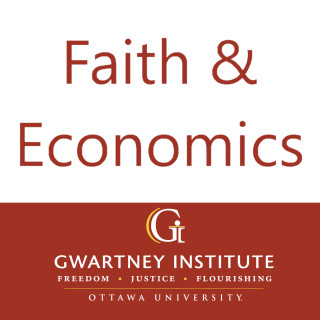
Ep. 244

In this episode, the Gwartney Team discusses Derek Parfit's Mere Addition Paradox relating happiness and population. Parfit's "Repugnant Conclusion" is that a huge population living a life of little happiness, is preferable to a small, but universally happy population. Join us as we break down this paradox from a faith perspective.
Philosophical ideas of a beneficial society / 3.00
Should society push for population growth? / 10.15
Arguments against the Mere Addition Paradox / 15.00
Is Z better than A? / 24.45
The Drake Equation for General Welfare / 30.30
Reasons and Persons-Derek Parfit